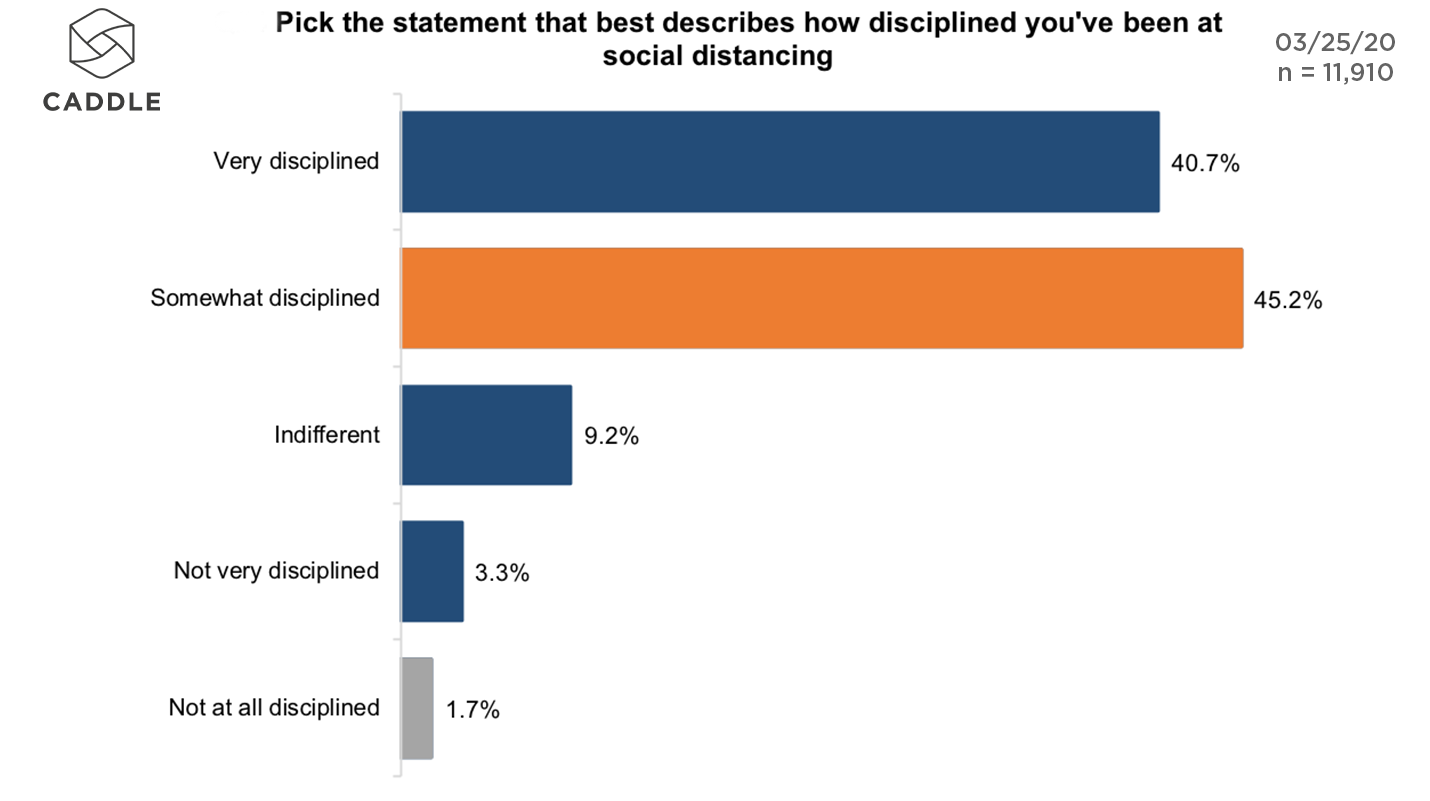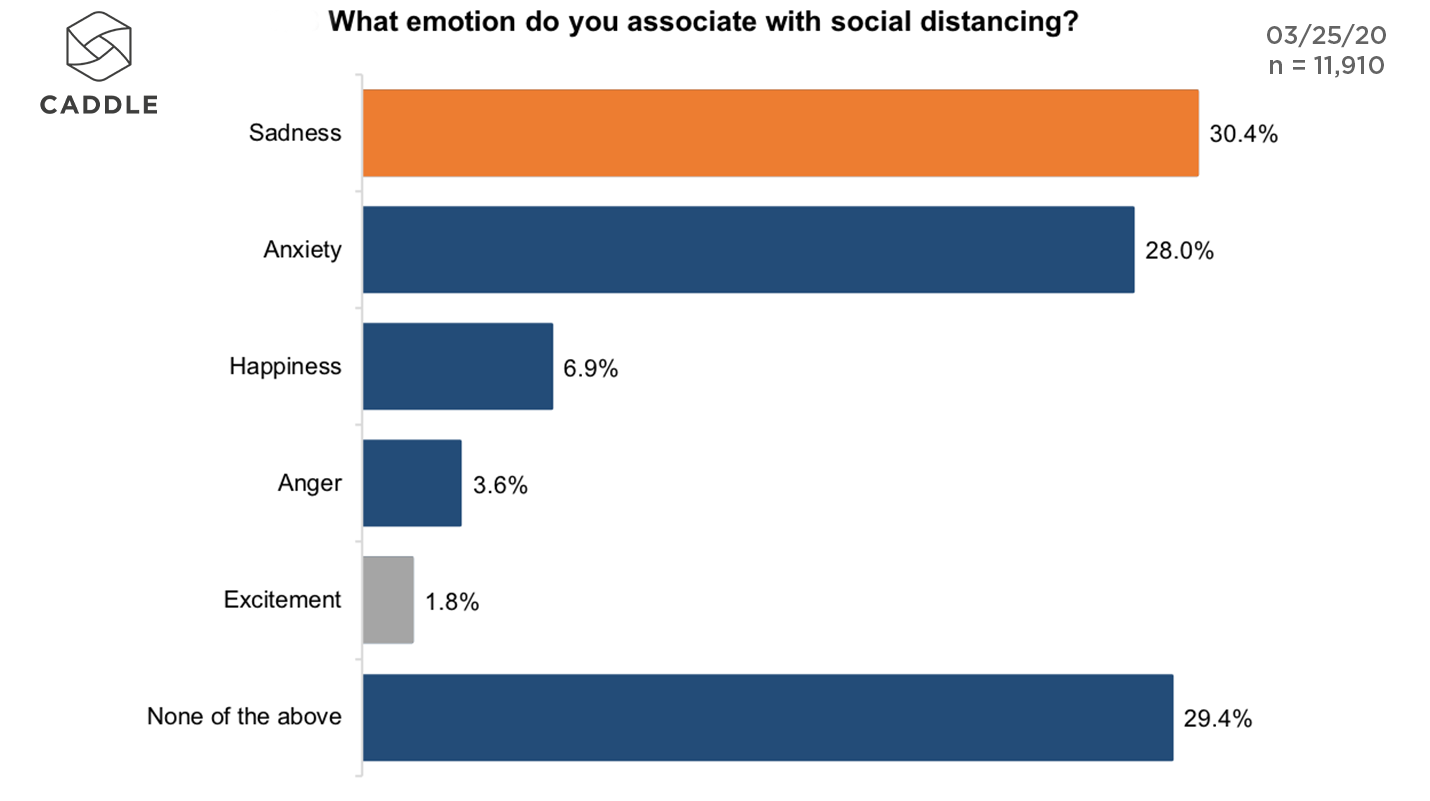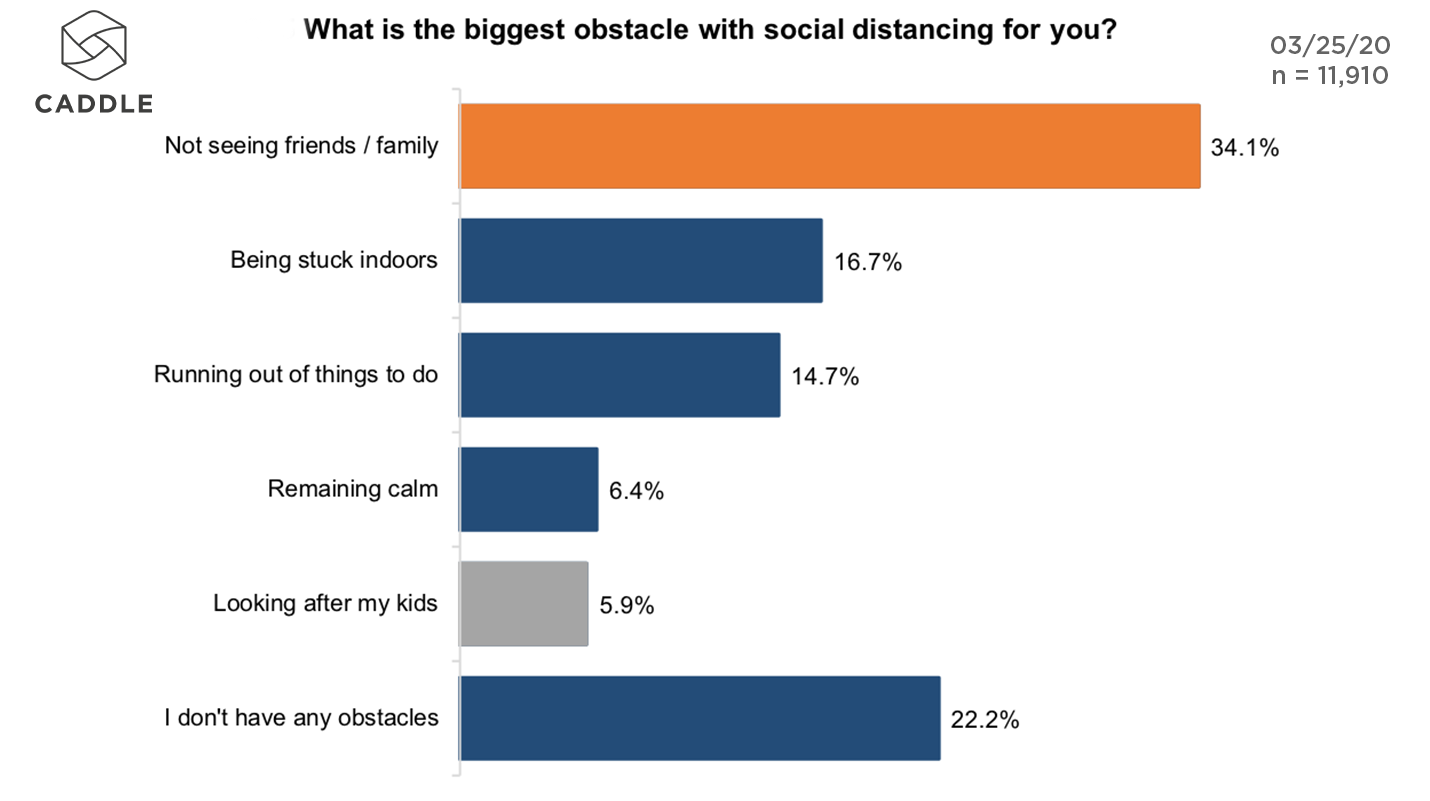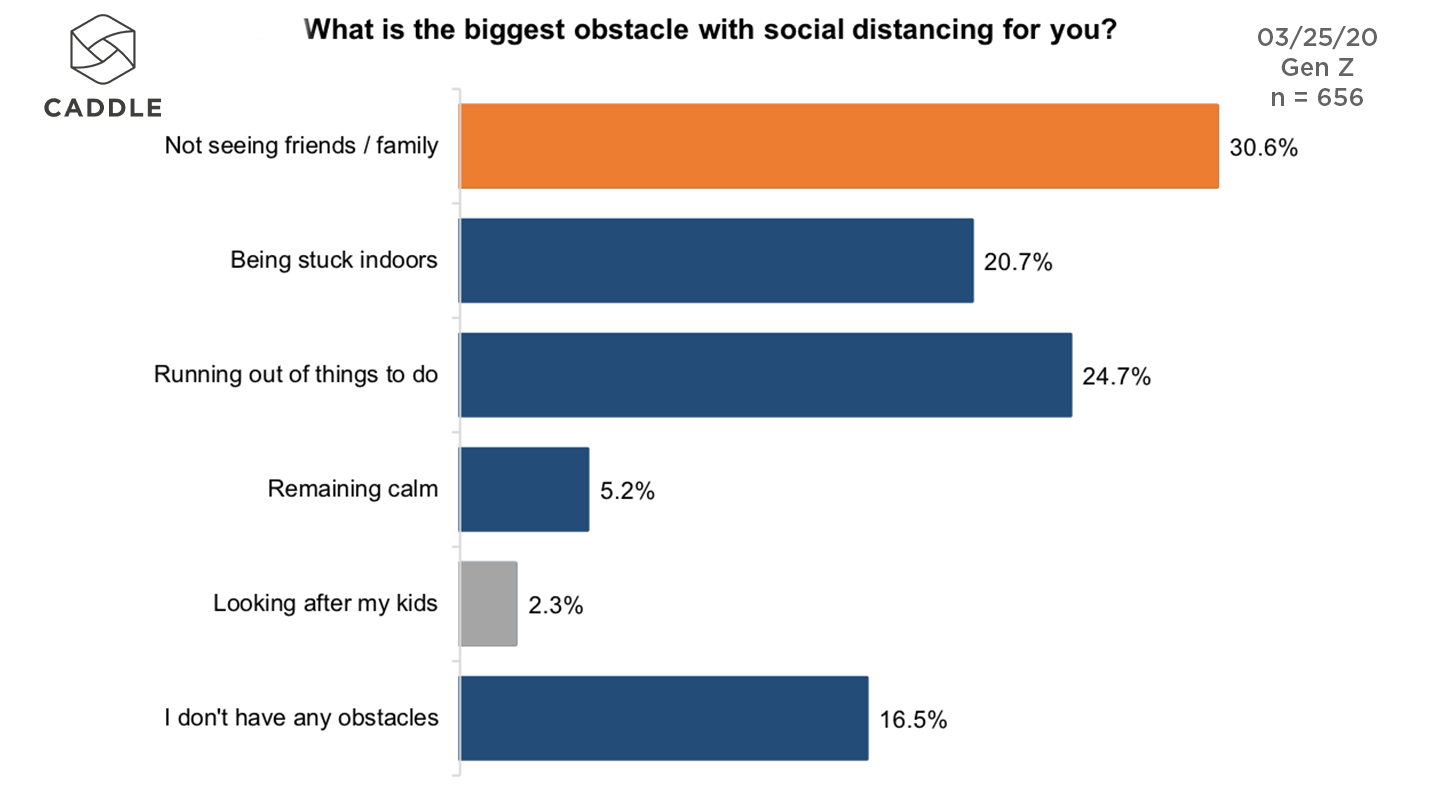COVID-19 Insights: widespread social distancing sadness
We're feeling down due to lack of exercise, social contact
For over two weeks Canadians have been told to stay home to limit the spread of coronavirus.
How have we been responding so far? We turned to Caddle’s 10,000 daily survey responders to find out.
Responses to questions we posted last week show that while we’re concerned about going out in public, confinement at home is taking its toll as well.
While panel members gave themselves solid grades for their social distancing discipline, they cited concerns over lack of exercise, amount of time indoors, and limited social interaction.
But as we’ll see, not everyone is feeling down about needing to stay in.
Is the message getting through?
After repeated messages from political leaders, celebrities, and brands to stay home to slow the spread of the virus, it looks like the message is getting through.
The vast majority of the panel reported a high level of concern with going out in public. Roughly two-thirds said their concern was either ‘high’ or ‘very high’.
This heightened concern also appears to be translating into stricter observance of social distancing guidelines. We asked our panel to give their opinion on how closely they had followed the guidelines.
Over 85% of people rated their discipline as high or very high for social distancing.

Who’s the most lax at social distancing?
Despite telling us in previous coronavirus surveys that they are the least optimistic about Canada’s ability to manage the coronavirus outbreak, Gen Z is also the least disciplined when it comes to social distancing.
One in ten said they had not been particularly disciplined with their distance – twice level for the whole panel.
Meanwhile only 70% said they had been disciplined or very disciplined with distancing. This compares with 85% for millennials and almost 90% for both Gen X and Baby Boomers.
As we’ll see below, this could be because younger generations are more likely chafe at needing to stay home all the time.
How are we coping?
Despite feeling like we’re following the rules, this isn’t without an emotional burden.
Almost 1 in 3 of the Caddle panel reported sadness as the overriding emotion they associated with social distancing. This trend was repeated across all age groups and with men and women.

What is it that’s getting us down?
Overall, it’s the lack of exercise and lack of outdoor time that worries our panel most about staying home.
For younger age groups in particular, not being able to get as much exercise was their biggest concern. Of the available options and ‘none of the above’, both Millennials and Gen Z selected less exercise as their top concern.
What would you like to ask the Caddle panel? Give us your suggestions here
So far at least, worries about a less healthy diet, or drinking more alcohol do not appear to be top of mind. Just under 1 in 7 panel members cited worries about their diet as their chief concern with social distancing.
With grocery stores and supermarkets remaining open, albeit with reduced hours, is the coronavirus actually having a relatively modest impact on what we eat? We’ll be exploring this in an upcoming report.
The biggest obstacle with social distancing for all age groups was with not seeing friends and family. Roughly 1 in 3 respondents reported this was the main issue they encountered with social distancing.
However this is a much more pronounced response for Baby Boomers, 40% of whom cited this as their main problem.

Has boredom kicked in yet?
For younger Canadians, the next biggest concerns were being stuck indoors, and running the risk of boredom.
Both Gen Z and Millennials over-indexed on a frustration of not being able to go out. Canadians in Generation Z were by far the most likely to cite running out of things to do as an obstacle with social distancing.

Nearly 1 in 4 of Canadians born after 1996 reported not having enough to do as their biggest barrier to getting through social distancing. That’s potentially a lot of people waiting for inspiration of something new to try, if brands are able to reach them.
Is anyone seeing the bright side?
Beyond the topline numbers, there are groups that are feeling more positive about social distancing.
Men it seems are a bit more comfortable with it. Just over 10% reported happiness as the emotion they associate with social distancing.

While only 3% of men reported feeling excitement about social distancing – this markedly higher than the 0.7% of women who selected ‘excitement’ as the main emotion.
Younger Canadians were also more likely to see the positive side of social distancing. The percentage of Gen Z panel members identifying happiness as their main emotion was 9.8%, compared to 5.4% for Baby Boomers.
What are Caddle Rapid Response Insights?
The data is based on 10,000 daily responses in the Caddle app. Anyone can join the panel. Just download the Caddle app to get started.
As Canada experiences the impact of COVID-19 we’ll be expanding and diversifying the topics we look at to understand the effects.. If there’s a crucial issue to your business that we can ask, reach out to a Caddle rep to find out more.
